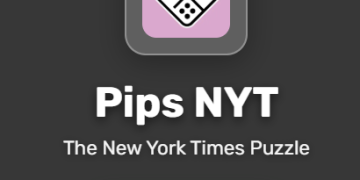Underage drinking remains a serious issue that affects millions of teens and their families each year. To tackle this, communities, parents, and organizations must adopt effective strategies that focus on prevention and open communication. By starting early and using the right resources, families can protect their teens and promote healthier choices. This article explores strategies to prevent underage drinking and highlights how organizations like Gobi Support can play a pivotal role in providing the necessary tools for families to confront this challenge.
Understanding the Issue of Underage Drinking
Underage drinking is often seen as a rite of passage by many teens, but it carries significant risks. Early alcohol use can lead to a variety of short- and long-term consequences, including impaired brain development, accidents, and substance abuse problems later in life. By understanding the issue, families can take more proactive steps to prevent it.
Gobi Support, a nonprofit organization dedicated to helping families and teens navigate their relationship with alcohol and drugs, provides valuable tools to raise awareness and address these concerns early on. Their digital platform promotes self-reflection and communication, enabling families to open the lines of dialogue about the risks and consequences of underage drinking.
Creating an Open Line of Communication
One of the most critical strategies in preventing underage drinking is establishing an open and honest line of communication between parents and teens. It’s essential that teens feel comfortable discussing their experiences, challenges, and pressures without fear of judgment or punishment.
- Start early: Begin discussions about alcohol before your child reaches adolescence. Setting the foundation early allows teens to understand the risks and expectations surrounding alcohol use.
- Be an active listener: Make sure to listen to your teen’s concerns, rather than simply lecturing them. This builds trust and helps them feel supported.
- Avoid strictness and over-control: Instead of being overly restrictive, create a partnership built on mutual respect and understanding.
Organizations like Gobi Support can help parents approach these conversations in a positive, productive way. Through reflection and structured communication, families can build stronger relationships and create an environment that discourages underage drinking.
Educating Teens About the Risks
Education is key when it comes to preventing underage drinking. Teens who understand the risks associated with alcohol are less likely to experiment. It’s not enough to simply say “don’t drink”; instead, families should focus on providing facts and fostering critical thinking skills.
- Discuss the consequences: Talk openly about how drinking affects the brain, body, and future. Understanding the real risks can deter teens from making dangerous choices.
- Teach coping skills: Teens often drink to cope with stress, peer pressure, or emotional issues. Helping them develop healthy coping mechanisms, such as exercising, journaling, or talking to a trusted adult, can reduce their reliance on alcohol as a crutch.
- Use resources like Gobi Support: Gobi’s platform offers tools for both teens and parents to understand substance abuse, emotional challenges, and healthy decision-making.
Modeling Responsible Behavior
Teens often model their behavior after the adults around them, especially their parents. To prevent underage drinking, parents and caregivers must set a positive example when it comes to alcohol use.
- Be mindful of your own drinking habits: If you drink, do so responsibly. Children are less likely to engage in risky behavior if they see their parents making responsible choices.
- Set boundaries for yourself: Avoid situations where you’re drinking in excess or acting irresponsibly around your children. Your actions will have a direct influence on how they perceive alcohol.
By modeling responsible behavior, parents can instill positive values that guide their teens in making sound decisions.
Establishing Clear Expectations and Consequences
Setting clear expectations and consequences regarding alcohol use is an important strategy in preventing underage drinking. When teens understand the rules and the consequences of breaking them, they are more likely to make responsible choices.
- Set clear rules: Establish a family policy on alcohol use, including no underage drinking. Be firm about these rules and communicate them regularly.
- Discuss the consequences: Clearly outline what will happen if the rules are broken. Consequences should be appropriate, consistent, and communicated in advance.
Gobi Support’s platform encourages families to reflect on their personal values and set expectations that align with their priorities. With the right tools, families can establish rules and enforce them effectively.
Monitoring and Supervision
Active monitoring and supervision of teens are vital to preventing underage drinking. While giving teens independence is important, it’s equally essential to keep track of their whereabouts and activities.
- Know where your teen is: Keep tabs on where your teen spends their time and who they’re with. It’s crucial to understand their social circles, as peer pressure plays a significant role in underage drinking.
- Be involved in your teen’s life: Attend school events, meet their friends, and engage in their interests. The more involved you are, the more influence you’ll have over their decisions.
- Set curfews: Establish appropriate curfews to ensure that your teen is not in situations where alcohol consumption is likely.
By staying engaged and involved, parents can create a supportive environment that discourages underage drinking and keeps teens safe.
Building a Strong Support Network
Preventing underage drinking is not a task that can be done alone. It requires the support of a strong community, including extended family, friends, and organizations like Gobi Support.
- Encourage group activities: Help your teen find hobbies and interests that keep them busy and engaged in positive social activities.
- Utilize community programs: Many communities offer programs that help educate and support teens in making healthy choices. Involvement in extracurricular activities can reduce the likelihood of teens engaging in risky behaviors.
- Leverage Gobi Support’s resources: Gobi’s platform connects families with valuable resources and support networks. It’s an excellent way for parents to gain insight into how to approach challenging topics and receive help when needed.
Promoting Healthy Peer Relationships
Peer pressure is one of the most influential factors in a teen’s decision to drink. To combat this, parents and families should focus on helping their teens develop strong, healthy friendships that encourage positive behaviors.
- Encourage positive friendships: Help your teen surround themselves with friends who share similar values and make healthy choices.
- Talk about peer pressure: Have open conversations about how to handle peer pressure and the importance of standing firm in their beliefs, even when it’s tough.
- Model positive interactions: Encourage socialization in settings where alcohol is not present, such as sports, volunteering, or creative activities.
Gobi Support can assist by providing tips and resources for families to discuss these issues in a constructive way, fostering stronger, healthier peer relationships.




























































